Pamela King Cable's Blog, page 8
September 19, 2012
What Do Christians Read When The Pastor Isn't Looking?
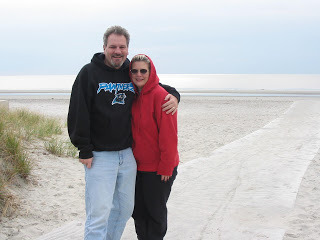
Years ago, I taught a class at a Romance Writers Conference in Kentucky. I asked a group of about 25 women, "What do you think Christian women want to read in fiction?"
The answers were all over the board.
But what surprised me was most agreed Christians do not necessarily opt for Christian literature each time they walk into Barnes & Noble, or log on to Amazon. Unbeknownst to their pastors, they want a good story first. It must move them in some way. Heart wrenching, painful, shocking, gritty -- romance should encompass all of these and more. And here's the best part: the industry is finally discovering that women (Christian or not) are now demanding it.
In fact, one woman in my class expressed herself in such a way that it hit me hard. Enough to write down some of it. She said, "Christan romance has quite possibly been developed to hold women captive within the boundaries of legalism." I recently read something like this on a recent blog post, which stimulated my need to write about it again.
The big publishing houses no longer have control over what is being written, published, and read by thousands. Formula romance, though beloved by many over the years, is suddenly being squeezed out by real, redemptive romance. Romance that includes suspense and the paranormal. Or mystery and murder. Crossing genres, romance is often woven through many of today's great novels.
In Outlander, by Diana Gabaldon, for example. The romance between Jamie and Claire is some of the best I've ever read. But no one can deny the sheer suspense of time travel in and of itself. You can't read the series without knowing a little more about Scotland and its history. I've read Outlander more than once, and I can tell you I'm glued to every bit of its 627 pages.
I want to see writers put their characters under mind-blowing pressure. And then I want the writer to make their worst nightmare -- worse. Stretch the characters to the limit and then bring them back. Real love is like that. It doesn't have to involve a Christian message or even erotica. Just kill us with tears, gasps, and sighs by the time we get to the last chapter.
A gripping love story, one that readers will remember, includes great sacrifice, incredible courage, and breaks the bonds of the selfish. If it includes sex, it's not only well written, it's full of emotion and yearning. Any novel where the writer labors over the romance, making it come alive, will captivate a reader.
Christians are not looking to have their ears tickled anymore. They're not bound by the church as to what they read. With conviction, they may steer away from the "shades of grey" but they're not afraid to tackle the reality of romance.
If you're a Christian who writes, as I am, don't hold back. Write your heart. You may be surprised where it takes you.
Blessings to you and yours.
Published on September 19, 2012 17:00
September 18, 2012
What Do Romance Readers Want And Why?
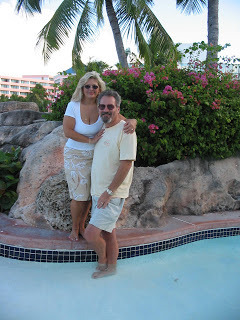
I recently asked readers in my circle, a group of church-going women and more than a few professed agnostics, their thoughts on Christian fiction, romance, and where you draw the line. I've also been reading opinions, post, and blogs to discover once and for all ... what do romance readers really want? It's been a fascinating revelation.
I found that although a few enjoy the "Calgon-take-me-away-moments" in fluffy, funny, happily-every-after novels, the majority demand the guts and glory of the story to show them something they've never seen, learn something they didn't know, take them somewhere they've never been. It's a daunting task for the writer.
At the end of my three-week research, I got a clear picture from the mostly 35 women I spoke to. They have to see the stakes raised on every page to keep them immersed in the pages.
I've been told most publishers believe women who read romance don't want to be challenged, inspired, or enlightened. That women don't want to think. They want to feel. I don't know about you, but that's insulting to me. (Okay, Okay. With one exception: if I'm relaxing in a bubble bath with a few lit candles on the tub and glass of Merlot within arm's reach, I need something soothing and well written. I don't need to read anything that'll cause me to drop my Kindle in the soap suds.)
But with that said, more than 50 % of the women don't want graphic material or sex kitten fantasy: They want reality-based fiction. No matter what they're reading.
I questioned two women who poke their noes in a romance novel only on occasion. They find them silly, trite, predictable. However, when I asked them if they've read the, oh, so popular 50 Shades of Grey, one told me she honestly felt embarrassed for the author. Her words, not mine. The other's face reddened and said, "I had to. I wanted to see what the fuss was about. But I threw the book away when I finished it. I didn't want my daughters to find it."
Other readers I spoke to and heard from want to be transported to the point they have to look up from the pages to remember where they are. They need to feel the raw emotion as tears on their faces. Listen up romance writers, readers are wanting more. Are we prepared to give it to them?
They want to see their hero and heroine fight against insurmountable obstacles to be together, even if they don't end up together in the end. Readers don't care about unrealistic expectations. We all have them; our lives are plagued with them, so why shouldn't the character's lives be full of unattainable goals The readers told me they still, indeed, rooted for them.
I've been told by those in the industry that truth is stranger than fiction because it can be. That fiction has to make sense. It can be as fantastic as you care to make it, but it must have an inherent logic to it at all times.
My question is -- logic to whom? What is logical to me is not logical to someone else. What is plausibility? To whom must it be plausible? The readers I spoke to agreed with me, the whole issue with logic and plausibility lies in the lap of the reader.
So go for it, writer.
But no more Barbie and Ken characters. Readers want a flawed protagonist. Inside and out. She may have gorgeous blond tresses and wear stilettos to work, but she's a recovering drug addict. He's a firefighter with chiseled cheeks and a hard body, but he's fighting an incurable disease. Readers don't buy perfection. Not anymore.
I'll write more about Christian fiction tomorrow ... you wouldn't believe what they're asking for.
Blessings to you and yours.
Published on September 18, 2012 14:31
September 13, 2012
How To Get A Free Copy of TELEVENGE!
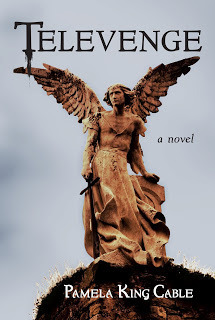
Win a signed copy of Televenge, a saga of religion, romance, and crime! Sunday is the deadline at www.goodreads.com !
Andie
Oliver is a faithful woman—to God, to husband Joe, and to televangelist
Reverend Calvin Artury, a Godfather in a Mafia of holy men.
Raised
to be subservient and submissive in the tradition of the Bible-belt South of
the 70s, she becomes a prisoner of that tradition. As a reluctant member of
Artury’s evangelical megachurch, the House of Praise in Winston-Salem, North
Carolina, Andie’s dream of children, home, and marriage falls apart when Joe is
hired on the ministry team.
The
charismatic Reverend conducts faith-healing crusades, creating the largest
religious TV audience in the world, surpassing the income and followers of Oral
Roberts and the Reverend Billy Graham combined. Working limitless hours, Joe is
sucked deeper into the ministry while Andie attempts to free him from the
Reverend’s control and far-reaching influence.
But
it is Mavis Dumass, Andie’s best friend since birth, a sassy African-American
woman and aspiring recording star, who holds the secrets to Reverend Artury’s
carefully veiled debauchery. What happens to Mavis will not be forgotten as it
leaves Andie near mental collapse and struggling for freedom from the cult’s
grip.
Andie
is still unaware of the extreme danger their pastor wields until she witnesses
the murder of a church member. Fearing for her life, Andie plummets from a
dreadful existence to a horrific one as she uncovers Reverend Artury’s
long-hidden truths, and loses everything, including her children. But she
strikes back, threatening to expose the Reverend to the world.
Reverend
Artury reverts to the twisted “cleansings” of his childhood. Raised by two
psychopathic aunts, he mentally declines and quickly, Andie must go into
hiding. Fighting for redemption for her family and herself, Andie confronts the
very definition of sin, and shakes the Christian evangelical world to its core.
Evading ruthless adversaries who will go to any lengths to protect Reverend
Artury, Andie battles the dark side of televangelism, forever changing a nation
of evangelicals.
With
more twists and turns than the Blue Ridge Parkway, Televenge exposes chaos in the megachurch, and embraces
those who discover unconditional love in a world of religious deception. An
unforgettable tale of heartbreaking loss, an invincible spirit, and incredible
courage.
Published on September 13, 2012 14:02
September 11, 2012
Why Public Speaking Is A Writer's Best Friend
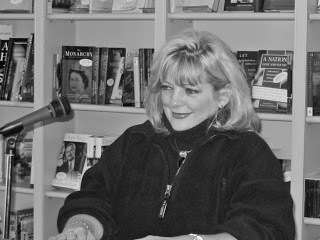
You've written the book. Now what? How do you
get your book noticed? After the good reviews, nice blurbs, a pretty book cover, guest blogging, interviews,
and diving into social media, what else can authors do to promote their book?
Selling thousands of copies of my first book was
no small feat. To say any writer can hand sell their book out of the trunk of their car would be a false statement. To
market and sell your book is hard work, to say the least. But writers, fearless
writers, can be fearless marketers.
Writers know about
platform and branding. Very simply, a platform is your customer base, your brand is your promise. A platform is the people who could, now and in
the future, buy your books. Your brand will keep them reading your work. Hopefully.
Writing conferences, securing
online presence, and joining networking groups will help a writer build that solid platform. There are a zillion web sites available for writers to
promote their books. But, it’s been my experience the
best possible marketing tool for the writer (drum roll, please) is public
speaking. Meeting your readers, up close and personal.
I know, I know … it’s not what writers want to hear. We’re
solitary folk, writing in the privacy of our homes, offices, attics, and
basements. So why would we want to speak publicly?
Whether you’re published by a big house, small house, or self-published,
YOU ARE YOUR BEST PUBLICIST. Speaking about your book is your best
tool--especially if it’s self-published. Although I have an awesome publisher (Satya House Publications www.satyahouse.com) Michael and I decided to take a little advance money and put it toward travel. And
travel, we did.
It's about to start all over again this October with the release of Televenge . A much bigger tour this time. From sea to shining sea. Lordy.
Anyway, I’ve spoken at over 150 venues to date, from New York City
to Orlando, Florida. You've probably heard me say this before, but we wore out two
cars and burned up lots of tax-deductible gas these past few years. Listen up. You never, ever stop marketing
your book. You are in control. After six years, I'm still selling Southern Fried Women everywhere I go.
How?
After I speak, I sell and sign books at the back of the room.
My speeches are tweaked for each event. And always, I talk
about my book and my future books. Want the real secret? It’s simple. Get the
audience to fall in love with you and they’ll flock to your book table
afterward to take a piece of you home. Be humble, be kind, be gracious, but most of all ... be genuine.
Smiling as I watch folks
line up, I have signed as many as 150 books at one event. I can attest it’s the
best confidence-builder in the world. PUBLIC
SPEAKING sells books that would otherwise sit in boxes inside your garage,
basement, or your publisher’s storage room.
REMEMBER THIS: IF THEY LOVE YOU,
THEY’LL BUY YOUR BOOK. And how do you get them to love you? GIVE A GREAT
SPEECH.
But first things first. If you're doing this on your own, without a publicist (like I did for my first book) you need a press packet or press
booklet. A press packet contains an overview page, letters of reference, press
releases, book reviews, a sample of your first chapter, and your bio. Actually,
you can put anything into a press packet or booklet you want. There are no hard
and fast rules. Anything that will open the door to a speaking engagement is
fair game.
I prefer booklets, they’re cheaper and you can make them
yourself. But they have to look professional. If you can’t do this, you’ll need
to find a graphic designer, or a talented friend who can help you. Your press
packet will be small at first, but as you speak and add letters of reference,
you’ll impress any group leader, president, or activity director.
Sign the back of each press booklet as a “signed limited edition.” They’ll be less likely thrown away.
Second, develop one or two speeches. That’s all you need at
first. You may wish to seek out a qualified speech coach, life coach, or
teacher. Practice your speech on professionals. Not family. Family members will
love you and your speech no matter how it sounds. Give your speech to someone
who can not only critique it, but also assist you in your delivery. Public
speaking classes are available at most local colleges, or join Toastmasters.
Enroll, apply, do whatever you have to do to hone your speech.
Southern Fried Women , published June 1, 2006, sold
over 2,000 copies in the first year. Not bad for a first book, small press, and mostly regional sales. My book was sold at the back of boardrooms,
conference rooms, lunchrooms, and ballrooms. In restaurants, book fairs,
banquet halls, country clubs, beauty shops, gift stores, town halls, cultural
centers, festivals, libraries and yes, a few book stores. I’ve spoken at book
clubs, women's groups, church workshops, assisted living centers, book festivals, writing conferences, a slew of Rotaries, Junior Leagues, and many other civic groups … the
list is a long one. There are hundreds of groups out there looking for good,
qualified speakers. The trick is, finding them. Use your contacts. Or your family's contacts. Pull in a few favors. But once you've given a great speech and obtain a letter of reference, you're on your way.
Remember, as a
published author you have an advantage over a professional speaker. However,
professional speakers are catching on to this. At a National Speaker
Association meeting I attended in Charlotte, these folks who speak for a living
are putting together CD’s, gadgets, booklets, all kinds of things and selling
them after their speech. Where? AT THE BACK OF THE ROOM. They know it’s another
way to make money, as well as giving their audience something to remember them
by.
How do I write a speech and talk about my book, you ask?
There are
five attributes any writer needs to be successful: Raw talent, commitment,
passion, luck, and unique voice. But YOU CAN APPLY EACH OF THOSE
attributes AS A SPEAKER. You’ve heard WRITE WHAT YOU KNOW. I SAY --- don’t just
write what you know about --- write what you care about. Your writing then has
an edge, becomes intense, the stakes are raised, and your characters become
larger than life. When you SPEAK the same applies. Speak about what you care
about. What matters to you the most?
Sure, we all know it’s
easier to develop a speech if you write non-fiction. If you wrote a book about
Growing the Perfect Rose, you could develop a speech around organic gardening or composting. In our
country, writing a book automatically makes you “an expert.”
But you can build your speech around your fiction, too.
Know your audience. Develop more than once speech and make
the titles available in your press packet and on your web site. Each speech can
be adjusted for any audience. Choose wisely the speech that best fits the
group. I have several speeches that I carry with me. Be a good judge of
character of any group, just like you are of an individual. Be prepared to
switch gears. If I walk into a room and feel the atmosphere of the room would
respond better to a lighter or different speech, I’ll switch to another speech
and they are none the wiser.
Unless you talk to other writers about your process,
experience, and tips on writing … what do you speak about? How do you develop a
speech and draw your book into your speech? And how do you market it?
Motivational? Inspirational? Educational?
Draw from life experiences. My speech, Out of the Dark , is not for the faint of heart or the
squeamish. I talk about coming out of a religious cult, and how that affected me as a
writer. I grew up in church, so I talk about why my stories are filled with religious threads.
Southern Fried Women is written about what
else? Southern women. And so, I developed a speech called What is a Southern
Fried Woman ? I’ve given this to many women’s groups. A speech about
women born and raised or transplanted to the South. It’s funny,
lighthearted, and compels those who hear it to remember their growing up years.
Later, I wrote the speech, Keeping the Southern Accent in
Southern Literature . I have a lot of fun with this speech. It’s a blast and
folks relate to it in a big way.
When I speak to business groups, and depending on what they
ask for, I give a speech called, Reinventing a Life from Office to Author .
How I transitioned into a writing career after many years in the
medical field. Retirement Homes and Assisted Living Centers often request The
Music of Southern Fried Women . I read excerpts from Southern
Fried Women and sing some of the old timey church songs I grew
up with. My husband accompanies me on the guitar. They love it!
And of course, I speak at Writing Conferences. I talk about The Voice of a Woman. My favorite is Publicity, Public Speaking, and Pulling Your Hair Out.
As an event
speaker you not only meet the nicest folk, but the opportunity to sell and sign
so many books is a real shot in the arm to your confidence. It’s thrilling to
see a line of folks waiting patiently for you to sign their copy. Whereas, at a
bookstore, you might, if you’re lucky, have five or ten people show up. Maybe.
But when you’ve been requested to speak at an event you have a priceless
advantage. You have a captive audience.
One important note to remember: If
you’re self-published, you can pocket the profit from book sales. If you’re not self-published, you’re still making money, and you're continually building your platform. Michael and I funded our last book tour from book sales at the back of the room! But EXPOSURE, EXPOSURE, EXPOSURE is the most important thing you're after.
Here’s another tip: Civic groups (non profits) have many fund
raising projects. When negotiating an event, I often donate a percentage of
book sales that day toward their event. It cuts into your profit a little,
but the reward is tremendous. Word of mouth is also your best friend. If you’ve
developed a great speech, soon you’ll have folks calling you to come speak
because they know you’ll not only entertain them, but give to their
efforts, as well.
Attend a meeting at your
local Rotary! Anybody can go to a meeting or two without joining. Ask a
Rotarian what would be the possibility of you speaking at one of their weekly
meetings. Rotaries, as well as other civic groups need good
speakers who are not out to sell them insurance or aluminum siding. They want
motivational, inspirational, and speakers with a message. Small groups mean smaller sales,
of course. But word spreads.
SPEAK locally first, and then branch out regionally. All it
costs you is TIME. Time to research your markets and the tax-deductible GAS to
get there.
Okay, if you sell 50 books at the back of the room and your
book sells for $15.00, that’s $750.00 for about 2 hours work. If you really want to see your profit, deduct YOUR cost for each book, your
sales tax, your expenses to get there, and donate 20% back to the group. That takes the profit down, but
even $500 is a great profit margin. And what else? Once again, you’re building YOUR
PLATFORM.
For my first book launch in 2006, I teamed up with my local Literary League, and
donated 50% of the profits to their scholarship fund. I RECEIVED A TON FREE
PRESS, TV TIME AND RADIO SPOTS.
Your best opportunity for speaking opportunities is NETWORKING. Join your local
chamber. Go to a meeting of your Red Hat Society Ladies, Garden Club, and Book
Clubs, Schools, anyone you know who belongs to a group who utilizes speakers. How about your
church? There are a host of networking groups you can join. The Internet is
great place to gather contact information for civic groups. But don't spam. And don't push. If they say no, then move on.
Writers must be overcomers. It’s an old church term I’ve heard for years. We have to overcome fear: the fear of public
speaking, the fear of promoting ourselves, and the fear of failure. It's important to me that the hours and hours I spent on my
passion are not wasted. Not only do I want my work published, I want it
read. Every day presents new challenges in my writing career, but public
speaking is no longer one of them.
If it worked for me, it can work for anybody.
Blessings to you and yours.
Published on September 11, 2012 15:49
September 7, 2012
What Makes A Writer Wipe Tears From The Keyboard?
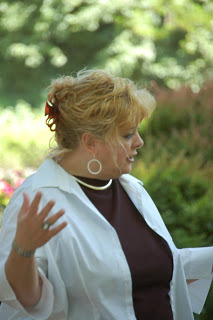
There is great personal
sacrifice in writing.
A few years ago I knew someone who said, "... she's wasting her time. Why doesn't she just get off her fat ass and go get a job?"
The man had no clue. He still has no clue. He has no idea the sacrifice that Michael and I have willingly gone through for me to stay home and write. Nor does he care. He's a twit, anyway.
For many of us, writing involves years of going without. Buying only what
we need, wearing out cars, clothes, shoes, and eating lots of PB&J. I'm fortunate to have my husband's income. But there's no doubt our lives could've been much better financially had I kept my j-o-b way back when.
Writers like me don't get published because our face shows up on the cover of Time or People
magazine. We get published by the sweat of our brow, suffering through the
process, and wiping many tears off our keyboard. A real writer writes because
if they didn't they'd shrivel up and die.
What makes a writer wipe tears from the keyboard? Snide remarks like the one above from someone who was supposed to be my friend. Strange enough, after the tears are wiped away, the words hang around. They churn and drill holes in my heart and wa-la! a character is born! That cruel man will someday show up in one of my stories, along with his unkind words and who knows what fate will await him? A gift bestowed upon every writer is the ability to wipe tears away and save them for later. I think one of the worst things you can do is piss off a writer. (wink)
I've traveled across the country. Given hundreds of speeches, presentations, and talked to a lot of different people. I'm about to do it again with the release of Televenge in October. I work seven days a week, most of the time. We've studied the industry for years. Jumped into the deep end of social media. And I have loved every minute of it. I wouldn't change a thing. I don't need to explain why I do what I do, especially to twits like the one above. In fact, sometimes I think comments like that are a good thing. It just makes you that much more determined.
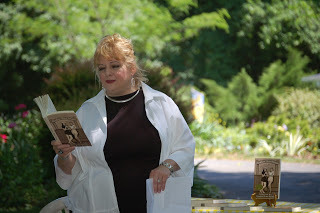
You see, it's not about fame, fortune, or greed. It's about great personal sacrifice, and the satisfaction is brings in the end. Some will understand, others most definitely will not. But you never stop. No matter what. For me, there was no other way. There never was.
So wipe the tears off your keyboard, baby. And keep going.
Blessings to you and yours.
Published on September 07, 2012 14:30
September 5, 2012
Where Can Writers Read Their Story Online?

The most unique feature in Southern Writers Magazine http://www.southernwritersmagazine.com, in my opinion, is the ability for authors to read five minutes of their novel online. It's called Take Five. My suggestion is to subscribe to this writing magazine, and as a subscriber you can then take advantage of this feature, as well as a few others. Kudos to Southern Writers Magazine for lifting up the arms of writers everywhere, standing behind us, and leading through open doors to find our readers.
After your book is published and prior to its release, upload Audacity software and record the first few pages, scenes, or paragraphs. If you don't like the sound of your voice, ask someone to do it for you. It's free, and it's one more way to connect with your network. Pretty simple.
Below is my sound bite. The first scene in my debut novel, Televenge . Pub. Date Oct. 2012. Enjoy!
http://www.southernwritersonline.com/take-five.html
Blessings to you and yours.
Published on September 05, 2012 12:16
September 3, 2012
Why Is There A Labor Day?
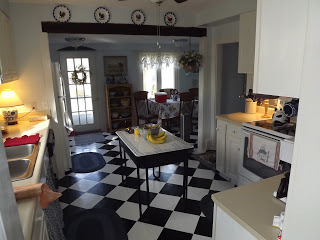
It's an ancient porcelain top table with a date stamped on the bottom ... 1929. It was covered with old clothes and canning jars and sat in my grandmother's basement for decades. When she died, Daddy found it and carted it home. Eventually, it ended up with me. There's barely a scratch on it.
Today, it sits in the middle of my old farmhouse kitchen. The table holds pies and cookies to cool, bowls of fruit, and cookbooks when needed. It's the perfect height for grandchildren to color or make Popsicles. It's a workhorse. A relic to the time when every kitchen had a workhorse table. I've always wished for a modern kitchen with all the bells and whistles. But I think I'd miss this old table.
I was born in the middle of the 20th century. I've grown up with technology. I love what it can do for us, how it can make our lives easier. Faster. I'm not sure I could write like I do without my computer and laptop. Smart phones and Blue Ray players. HD television and GPS systems. Lord knows, we've worked hard to keep up with it all. I've come a long way since that old Royal manual typewriter I learned on.
But there's something to be said about my old kitchen. Farm living forces you to slow down. Take a break. To stop and feel the breezes blowing through open windows. To listen to the sounds of early morning cows and horses, watch storms roll in, taste fresh tomatoes from the garden. There's always a barn cat or two with a mouse in its mouth. Views of pastures in every direction. It makes you breathe and grateful to be alive. Makes you realize ... you can do without technology for a day.
It's Labor Day. A time to remember how the past labored a whole lot harder than we did. The original family who lived in our old farmhouse were up with the chickens and to bed with the sun. They seldom ventured more than twenty miles from home. They read books by lamplight and slept on the porch on hot summer nights. The news came in spurts via newspapers, or a gossiping neighbor. They lived off the land and the sweat of their brow, and never dreamed that someday a writer would roll out pies inside their house after a morning of talking to friends in cyberspace.
Trouble is, we got so busy we had to come up with Labor Day. A day to not only appreciate the laborers in our country, but give them a day off. The world has gone and got itself in a big hurry. I like a simple life. A life that includes an old farm, a black and white kitchen floor, and a workhorse table from 1929. I wish every day was Labor Day.
Blessings to you and yours.
Published on September 03, 2012 11:43
September 1, 2012
What Are The REAL Shades of Grey?
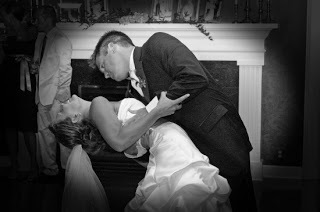
All of a sudden shades of grey are in the news! It's old news to me. Women my age, Lord, we've experienced the real shades of grey for a couple decades. What's new is suddenly what the shades of grey represent. In literary terms, the words conjure up images of erotica. You know what I mean if you've read the oh, so popular book. I'm sure you've heard about it. It's like someone just created sliced bread or something. Good grief. Shades of grey have been around for thousands of years, folks.
The real shades of grey are not in whips and chains, force and pain. The best shades of grey are whispered into a lover's ear on a pillow of down. The soft caress of a weathered and wrinkled hand on the hand of a partner after 50 years of marriage. Laying beside a lover on a hot summer night, skin-on-skin, only to find you can't be parted. To yearn from the inside out. To be held so warmly and loved so deeply, those are the shades of grey that matter. The real grey. The grey we live for. Die for.
Shades of Grey? It means pretty crazy stuff to some. But to me ... oh, Lord ... it's to be swept off my feet, in love and in words. These are the shades of grey that melt my butter.
Sex without love is like a poorly written book. You can read it, but secretly wish you hadn't. Sex with love will carry you to the end of your days like one of the classics. Even if you only read it once in your life, the story remains in your head and your heart forever.
Blessings to you and yours.
Published on September 01, 2012 10:06
August 30, 2012
When Do You Leave Your Church?
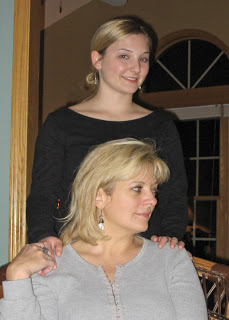
My daughter, Jillian, and me. I love her hands. They look like mine. A mother never lets go of her children's hands.
My parents took me to Sunday school, revivals, and holy-rolling church services from the time I was in diapers. I don't remember my first church experience. But I do recall when my parents began to attend a large church near our home. I was eight. A fountain loomed into the sky on the mammoth front lawn of the church. At night after a long, hot church service, a bunch of us knobby-kneed kids would play under the fountain's cool water spray that turned colors in the dark. Pink, blue, green, and finally we stood in awe as fake blood trickled down the illuminated white cross in its center. On the cross was the word "LIFE." It was exactly what that church took from us. Our lives.
We were taught to resist the devil so he would flee. Turn our backs on society, because society would send our souls to Hell. We were told to pray for those we admonished, because until they walked inside our sanctuary and received Jesus as their savior, they were all doomed. We were right, they were wrong. We were good, they were evil. We were the elect of God because we spoke in tongues, they would never make the rapture. We had come out from among them and lived where the healing water flowed.
We gave our last dime and saw the blessings of the Lord in everything. A sale on pantyhose, a bigger tax return than we expected, a great parking spot at the grocery store, a found five-dollar bill at the bottom of our purse. We worked out our salvation in fear and trembling and never, ever doubted the Bible, our salvation, and most of all, our pastor.
We testified to the godless, but never associated with them, unless they joined our church. Not another church. OUR church. And we never cast our pearls before the swine.
I grew up in doctrine and dogma, until one day after I turned seventeen and married my childhood sweetheart, my parents decided they'd had enough. They left the church for good.
But my mother never let go of my hand.
I was to shun my folks, "give 'em a good lettin' alone!" I knew my parents wished they had never stepped foot in that church, but it was too late for me. I was married to it. The relationship with my parents became strained.
I continued to attend what had become a megachurch, striving to please, wanting to be one of them, hoping for good things to happen, believing the blessings of the Lord were right around the corner. I was held over Hell on many occasions when they felt me pulling away. But I always came back, falling to my face at the altar. I had surrendered all. All to Jesus I surrendered, always hoping He would notice and reward me for it. My faith wavered, but I was proud. My husband was on the ministry team, my children were active in the children's church, and I never talked much about our church life to my mom. It was a sore spot.
But my mother continued to pray for me.
As my children grew, they were discouraged by the church to attend any Friday night school or social function. (Our big church service was on Friday nights.) The fear of God had been planted in them. One day, something magically happened. I began to see in them what my mother had seen in me. Bondage. It grieved me. I began to pull away. Slowly. It took years to break free. But I wanted to do it before my children became fully indoctrinated. Before I lost them, as my mother had lost me for a time. I wanted to give them a choice. Freedom. And that's when I realized ... I should have left long before I did.
The years following were a nightmare. For all of us. I kept waiting for the time I would drop into Hell. But it never happened. It took a long time to shake the fact that I could not convince my husband to compromise. He chose his God and his pastor over me. I had become a contaminant. He did not need to understand me, and there was no reason to try. I was not redeemable. I was, in fact, the dog who returned to its vomit. My fate was sealed. I was dead already.
It took years, but one day I woke up to find my hand had never slipped from God's hand. Through my mother, He had held on to me. I clawed my way out of the darkness and into the light of God's grace.
Many churches do not hurt. Their members are free to experience life in and outside the church. The church family is an extension of their own.
But if your spirit is grieved and hurting. When should you leave your church? I think inside you know the answer to that question. Look into your children's eyes and answer it for yourself. Then you'll know.
Blessings to you and yours.
Published on August 30, 2012 19:18
August 28, 2012
A Writer's True Passion Comes From Anguish

I listened to David Wilkerson last night. A well-known fire and brimstone evangelist whose messages stir the emotion and bring most either to their feet or their knees. Clips of his sermons are posted on You Tube. You can search for him there.
"True passion comes from anguish," he said. His words flew into me like a fiery arrow, illuminating my past. Wilkerson's message centered around anguish and how todays church is void of it. He's a big believer in, Cryin' Holy unto the Lord . He professes the church has gone soft, that we're basically a bunch of babies who want to be soothed and coddled. That we no longer tarry for hours before the Lord, prostate at the altar. That God wants to see our anguish over the state of the world and our Godless nation. Wilkerson has that pastor voice. You know what I mean? He's learned how to wail when he speaks, allowing us hear his heart as it breaks for the sins of mankind. And if you've grown up as a fundamentalist, it moves you. Even if you've never sat in a tent revival, I think it would move you.
Whether or not you agree with Wilkerson's message, you have to agree that true passion is definitely born from anguish. As a writer, I believe the heartaches and hardships we experience give us plenty to write about.
The kind of anguish I'm talking about is not about a fender-bender in the parking lot. A bad grade on a test. Losing your wallet. Or a fight with your spouse.
Anguish, suffering, agony, grief, sorrow and angst ... comes from a break in your spirit. A temporary disconnection with yourself and the world around you. The loss of anything dear to you creates real, gut-wrenching anguish. The kind you feel down to the soles of your feet. Buckets of tears. Nobody wants to experience it. Nobody wants to go through something like that, and I hope and pray you never do.
But if you do, what you do with that anguish, how you channel it, will determine your future in many ways. And if you're a writer, it can propel you into another level. I've read books where I know, without a doubt, the writer has suffered at one point in his/her life. You can feel it in the way they put the story together. Raising the stakes isn't so hard, because they've lived it.
Not a pleasant topic to blog about, but I think it needs to be said. Personally, I hope I never see another drop of anguish as long as I live. I've had my share. David Wilkerson can wail as long as he wants about anguish, but I never want to experience it again. Ever. It's not a pleasant place to go to.
I want you to remember this, if you've closed the door on your anguish, the memories of it ... and if you're a writer ... you may want to revisit that dark place. Your writing changes. Something inside you clicks and literary takes on a whole new meaning.
My passion was truly born from the sorrow, grief, and the anguish of my life. Now, at least I can say, the joy of the Lord is my strength. At some point the tears have to stop. The river of sorrow has to trickle to nothingness. We have to move out of that place and use what we've learned to write the story of our life. It's not something we want to think about, anguish, but be thankful for it. It's made you who you are.
And despite the fire and brimstone, that's a good thing.
Blessings to you and yours.
Published on August 28, 2012 08:08
Pamela King Cable's Blog
- Pamela King Cable's profile
- 54 followers
Pamela King Cable isn't a Goodreads Author
(yet),
but they
do have a blog,
so here are some recent posts imported from
their feed.



